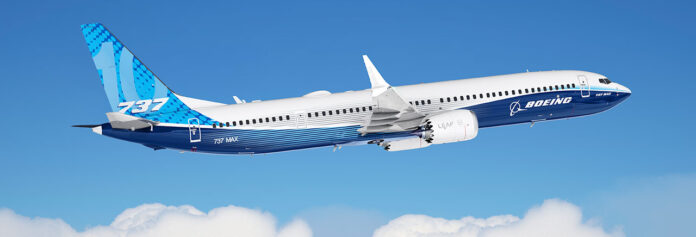Boeing Co. (BA) has endured a punishing year, with its stock tumbling approximately 35% year-to-date, making it one of the worst performers in the Dow Jones Industrial Average. Closing at $111.76 on April 17, down from $171.87 on January 1, the aerospace giant has been battered by a confluence of trade policy shocks, production setbacks, and heightened competition, overshadowing pockets of financial resilience. Investors are grappling with a company at a crossroads, as Wall Street debates whether Boeing can stabilize amid escalating global tensions.
The year started with cautious optimism following Boeing’s fourth-quarter 2024 results, reported in January, which showed a narrower-than-expected loss of $3.86 billion and revenue of $22.1 billion, up 10% year-over-year. A $20 billion-plus fighter jet contract win bolstered its defense segment, and a commercial aircraft backlog of 5,595 planes signaled robust demand. However, these positives were quickly overshadowed by persistent challenges. Supply-chain bottlenecks and labor disputes, including a strike that ended in November 2024, disrupted 737 Max production, capping output at 38 planes per month, well below targets. Shares slid 8% in February as analysts downgraded forecasts, citing delivery delays.
The most severe blow came in April, when President Donald Trump’s tariff announcements triggered a market rout. On April 3, Boeing’s stock plunged 7% as fears of a 10% blanket tariff on imports, with up to 145% duties on Chinese goods, rattled investors. The situation worsened when China, a key market, retaliated by halting Boeing jet deliveries and imposing tariffs reportedly exceeding 125% on U.S. aircraft. Bloomberg reported on April 14 that Beijing ordered Chinese airlines to forgo additional Boeing planes, favoring Airbus SE and domestic manufacturer COMAC. Boeing shares fell 2% that day, with X posts estimating a $1.5 billion immediate financial hit from canceled orders. “China’s pivot to Airbus is a gut punch for Boeing,” said JPMorgan analyst Seth Seifman, who cut his price target to $130 from $150.
Boeing’s stock has been a barometer of trade war volatility. A brief rally followed Trump’s April 9 announcement of a 90-day tariff pause, with shares spiking 5% intraday, but gains evaporated as Federal Reserve Chair Jerome Powell warned on April 15 that trade tensions could undermine growth. The stock dropped 3% that day, reflecting broader market unease. Year-to-date, Boeing has traded between $97.44 and $161.22, with a 50-day moving average of $115.32, signaling persistent bearish sentiment. The CBOE Volatility Index, Wall Street’s “fear gauge,” remained elevated at 30, down from a high of 60 earlier in April, underscoring the market’s skittishness.
Regulatory and safety concerns have added to Boeing’s woes. A January 2025 FAA audit flagged ongoing quality-control issues in 737 Max production, reigniting scrutiny after a 2024 Alaska Airlines incident. Meanwhile, Airbus’s A320neo family has gained market share, with Chinese airlines reportedly favoring its cost-competitive models. X posts have highlighted Boeing’s slipping grip on China, with one user noting, “Tariffs and COMAC’s rise could lock Boeing out of Asia’s growth market for years.”
Despite the gloom, some analysts see glimmers of hope. Boeing’s defense division, bolstered by Pentagon contracts, is projected to generate $35 billion in 2025 revenue, offsetting commercial weakness. The company’s $500 billion backlog provides a long-term cushion, and CEO Kelly Ortberg’s cost-cutting measures, including 17,000 job reductions announced in October 2024, aim to shore up margins. First-quarter 2025 earnings, due April 23, are expected to show a loss of $1.12 per share on revenue of $17.8 billion, per Zacks estimates. Analysts project full-year revenue of $77.65 billion, down 0.3%, with a loss per share of $4.87.
Wall Street’s outlook is mixed. Of 26 analysts, 14 rate Boeing a “Hold,” with a consensus price target of $135.67, implying a 21.4% upside. Optimists, like Bank of America’s Ronald Epstein, argue that resolving production issues and securing U.S. orders could lift shares to $160 by year-end. Bears, however, warn of further downside, with LongForecast predicting a drop to $94 by November if trade tensions persist. Technical indicators are grim: 20 of 25 signals are bearish, and the Fear & Greed Index sits at 39, reflecting investor caution.
As Boeing navigates this turbulent landscape, its fate hinges on trade policy clarity, production recovery, and competitive positioning. With a market cap of $68.4 billion, the company remains a titan, but its stock’s wild swings—down 5.5% on April 4 alone—underscore the high stakes. Investors await Ortberg’s next moves, but for now, Boeing’s wings are clipped by forces beyond its control.
By: Montana Newsroom staff




